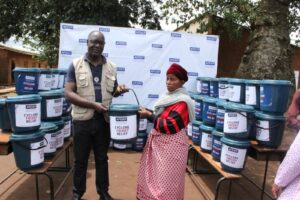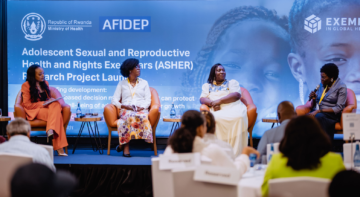News

The loss of any life is a loss of too many. The devastating effect of Cyclone Freddy on the lives and livelihoods of the people of Malawi is distressful to all of us at the Africa Institute for Development Policy (AFIDEP) as it is to the rest of the country.
The government of Malawi declared a state of disaster in the Southern Region on 13 March and appealed for support from local and international partners.
In this context, we found it essential to join hands with fellow Malawians and provide the needed support during this challenging time. We will all feel cyclone effects somehow, but women and girls often have an added burden. Aside from the dire need for food, shelter and health services, women and girls still need sanitary ware. They still get their periods during disasters. Many girls often struggle to keep themselves clean in catastrophe. Hence our support will focus on these often-neglected demographic groups. We want to help combat this health gap.
AFIDEP is contributing 2000 FemKits worth MK20 000 000 to enable at least 2000 women’s and girls’ lives to go on during the cyclone.
AFIDEP encourages those mobilising humanitarian aid for cyclone Freddie victims to incorporate girls’ and women’s unique reproductive health needs.
Cyclone Freddy symbolises the devastating impact of climate change on the well-being of families, communities, and countries, especially in Africa.
Unfortunately for Malawi, the cyclone came at a fragile time when the government was consolidating recovery from another climate-exacerbated Cholera outbreak, which claimed over 1200 lives. These climate change-instigated challenges highlight the urgent need to scale up the use of emerging evidence and traditional knowledge to institute sustainable solutions to fortify the country’s disaster preparedness and resilience of communities.
The loss of lives and livelihoods, property and other development infrastructure underscore the need for the international community to move from rhetoric to action in reducing carbon emissions and fulfilling financial and technical commitments to support African countries in building resilience to the devastating effects of climate change. Unfortunately, innocent people like those in southern Malawi often suffer the most, despite their zero contribution to the changes in weather patterns.
AFIDEP is a Pan-African research and policy institute established to bridge the gaps between research, policy and practice. We help decision-makers use evidence for efficient resource allocation. We discovered that when policymakers use evidence to guide their decisions, it goes a long way in improving people’s lives in that it addresses their most pressing needs.

Chief Indar Mhone, making remarks before distributing the FemiKits

AFIDEP partnered with Churches Action in Relief Development (CARD) during this mission.
Related Posts





